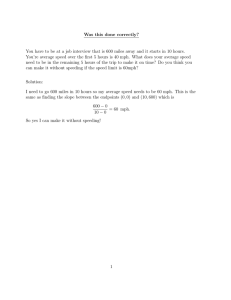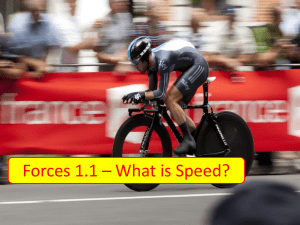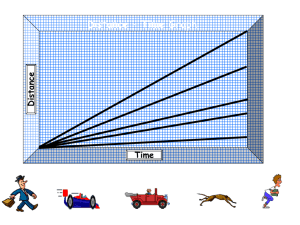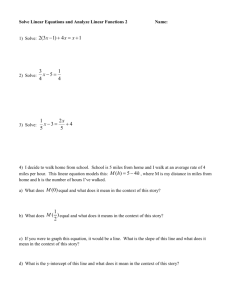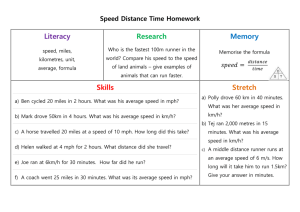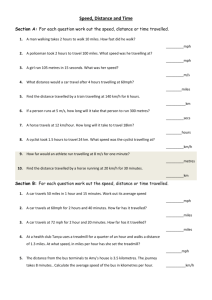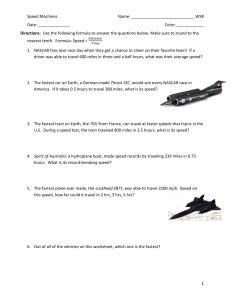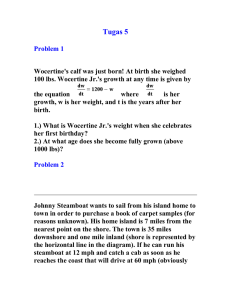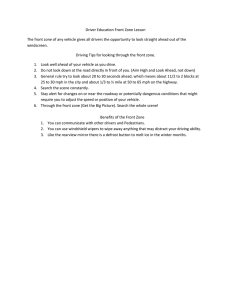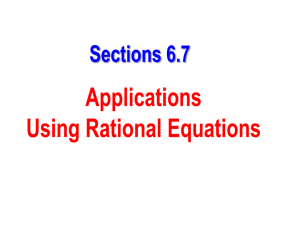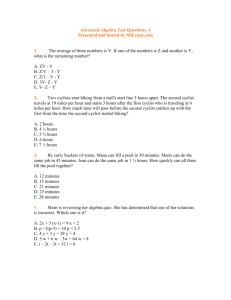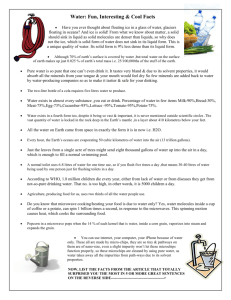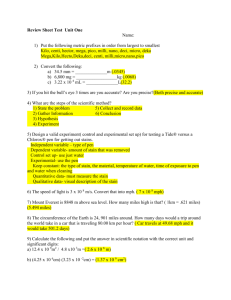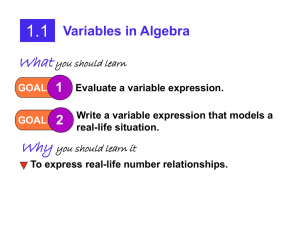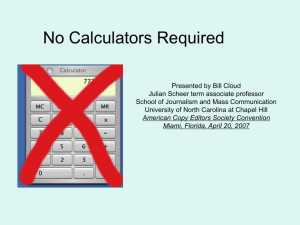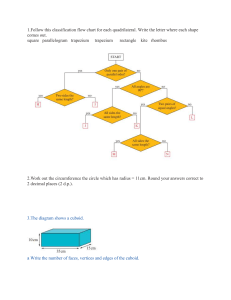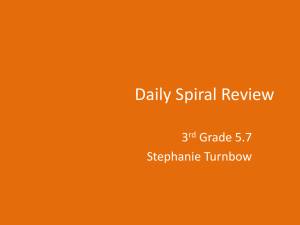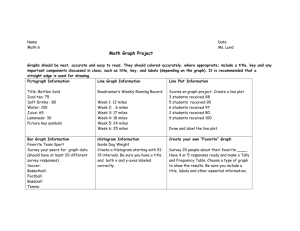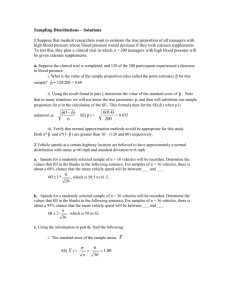Slides - Nuffield Foundation
advertisement
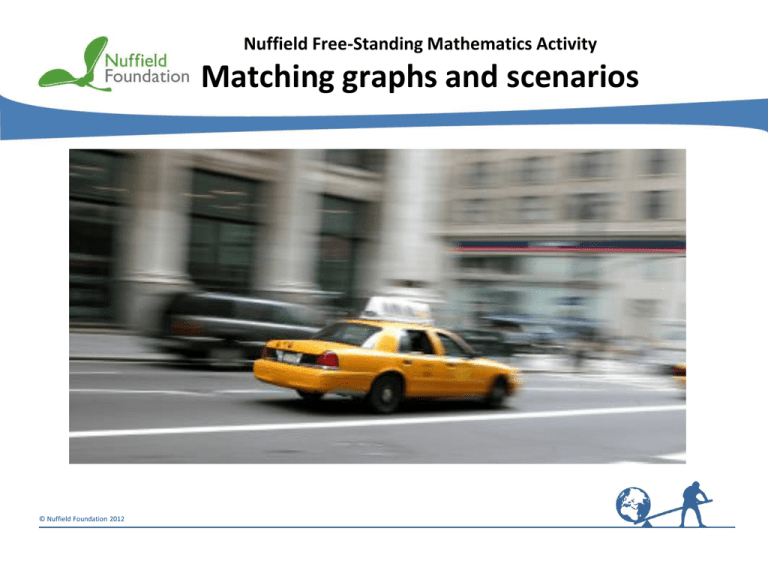
Nuffield Free-Standing Mathematics Activity Matching graphs and scenarios © Nuffield Foundation 2012 Measuring pulse rate Measurements from real-life situations give different shapes of graph. Using the cards, match each scenario with its graph. Conversion graph (miles against kilometres) miles 100 kilometres 0 160 Graph showing 100 mile journey Distance travelled (miles) 100 0 2 Time (hours) Graph showing amount of oil in tank Amount (litres) 100 0 5 Time (days) Graph showing temperature of water Temperature (C) 100 20 0 60 Time (minutes) Graph showing temperature of bread Temperature (C) 0 30 Time (minutes) – 20 Conversion graph (F against C) Temperature (F) 212 32 0 100 Temperature (C) Graph showing vehicle travelling at a steady speed before an emergency stop Speed (mph) 50 0 Time (seconds) Graph showing depth of water in bath Depth (cm) 50 0 Time (minutes) 5 Graph showing vehicle setting off from junction Speed (mph) 50 0 10 Time (seconds) Graph showing growth of a plant Height (cm) 50 0 10 Time (weeks) Graph showing heart rate in exercise Heart rate (beats/minute) 100 0 Time (minutes) 50 Graph showing amount of water in container Amount (ml) 200 0 50 Time (seconds) At the end of the activity When interpreting a graph, which key features are useful? Describe a real situation that would give a linear graph. Describe a real situation that would give a curved graph. Describe a real situation that would give a graph with more than one section (straight or curved).
